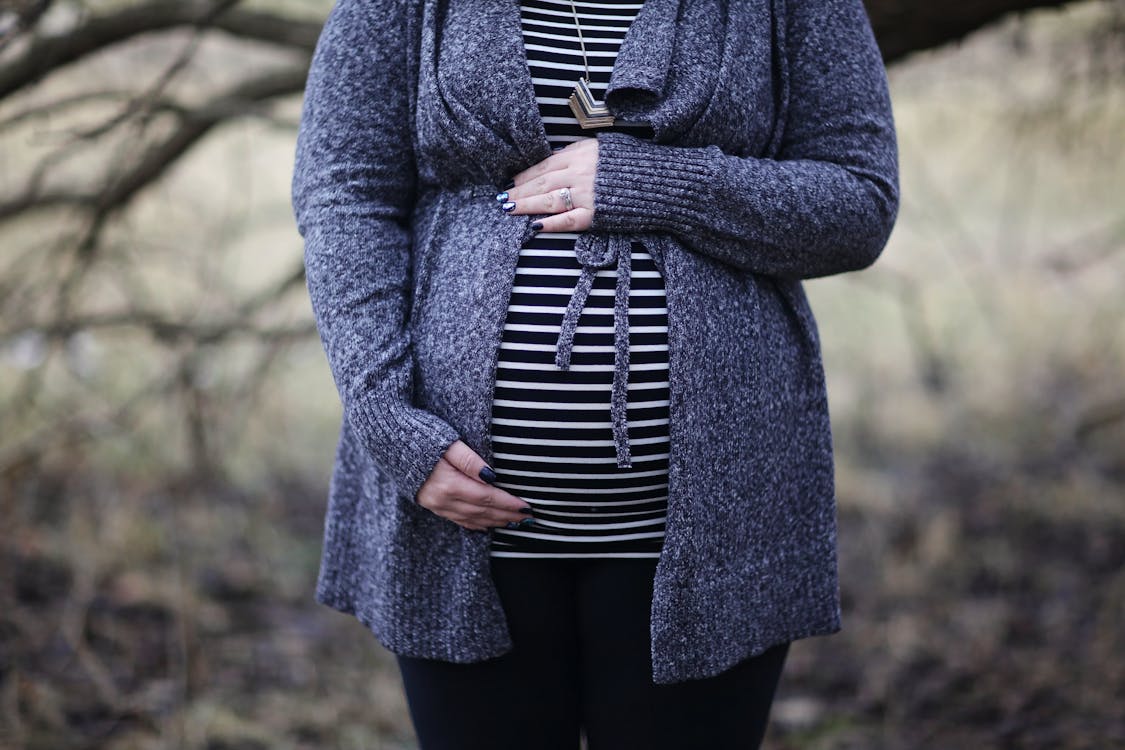Practical Tips for Coping with Pregnancy Incontinence
Jessica Lubahn 5 min read

Incontinence during pregnancy does not happen to all pregnant women, but it happens to a good many. Around 40% to 85% of pregnant women experience some urinary incontinence. If you don’t, consider yourself very lucky! One of the biggest indicators that you’ll develop UI or urinary incontinence is Body Mass Index and heredity.
Unfortunately, all pregnant women will eventually tip the scale up, driving their BMI over the “normal” weight. You’re incubating a new life! Your body actually needs all that extra junk in the trunk to nourish growing life. The bad news is that extra weight means extra burden on the organs, including your poor little bean bladders.

Pregnancy Incontinence and Tips for Managing It
Expect your urinary tract to be under stress from the very beginning of pregnancy. The bladder is directly squished by the uterus as the uterus expands. Hormones are coursing the bloodstream like a broken dam, putting more pressure on the bladder. It’s no surprise the bladder gives in every now and then.
But not to fret, there are many women before you who have weathered the same ordeal. UI is nothing new, it has happened before and will happen again to countless other preggies. You are just like any other pregnant woman.
In fact, did you know that incontinence is the first symptom of pregnancy? Even before you notice breast tenderness, increased appetite, or receive some sign from your tarot reader that you’re expecting, you may be struck with a sudden case of incontinence.
Pregnant women have to deal with incontinence from the very beginning of pregnancy, throughout the duration of their pregnancy, and after pregnancy. It’s a long journey, you’ll need to carefully prepare.
Mind Your Movements
The most common type of incontinence in pregnant women is called Stress Urinary Incontinence (SUI), experienced by 54.3% of women. There are other causes for UI during pregnancy, including urinary tract infection, constipation, and gestational age. But stress UI is the most common.
Stress incontinence does not mean you are mentally stressed out. SUI is the kind of leakage that happens when you cough, laugh, bend or lift something. If you do some moderate exercises, you might get some leakage problems. Some women leak a little throughout the day, others only get a mild case of leakage.
This is not to say that pregnant women need to avoid laughing, sneezing or coughing. This is also not an excuse to skip exercise altogether. But you will want to skip high impact activities, like plyometrics, jumping, and running.
Stress incontinence can cause social embarrassment. But it is unavoidable for many pregnant women, treatment is a long way away for stress incontinence.
The best you can do is to mentally and emotionally adjust to the condition. An understanding partner helps. In public, common courtesy towards pregnant women goes a long way.

Prepare for Bathroom Emergencies
You’ll always need a bathroom nearby, because for incontinent pregnancy every second counts. There’s no holding it in for long. It is also not recommended to hold in your pee for long. Waiting in line at a public restroom must be a hundred more times torturous for pregnant ladies.
To avoid embarrassment, many pregnant women avoid social events and activities. Especially when activities are too tiring or when the venue has no accessible bathroom. It is time to be selfish, schedule your activities according to your body’s needs.
When invited to a picnic at the park, but the park has no bathroom, then decline- and don't feel guilty about it! You don't want to end up in the bushes when it comes time to pee.
Incontinence in the Workplace
There are many pregnant women in the workplace, but not all workplaces are kind towards pregnant women. If your job requires you to stay at your station, no bathroom breaks outside the assigned time, you’ll have to find another way to adopt.
Not to worry, you don’t need to quit your job. But you’ll have to stay dry. For small leaks, regular sanitary napkins will do the job, but for less maintenance check out Incontinent Panties that are built to hold more and keep you dry all day. The absorbance of a night pad may be all you need to get you through the day.
Most menstrual pads cannot fully contain thin liquids like urine. You can still get some overflow. Get some extra protection with leak proof underwear. If you’re comfortable with diaper butt, go all out with an adult diaper.
Don’t force your body to hold in leaks for extended periods of time. It’s not healthy. Don’t forget to keep dry by changing pads as often as you can. Wash or use wet wipes to remove any leftover urine that can eat into the skin.
Keeping dry will also prevent yeast infections, another common condition during pregnancy.

Stock Up on Products
It’s time to be hoarder. There are just times when you can’t avoid long periods without a bathroom break. You may have to travel, attend a long meeting, or stay out where there are no public restrooms.
It’s time to go online and look for the best water absorbing products you can find on the internet. When you have a problem, someone out there has already figured out a solution and made a product.
The obvious buys would be pads and diapers. But there are also sealed waterproof panties and special clothes that will hide that water stain much better. With careful planning, you’ll avoid the worst embarrassing pitfalls that may happen.
But if they do happen, don’t beat yourself about it. Nobody died from wetting their pants a little. It happens to lots of women, including your favorite celebrities who have had kids. Just like when you get a little blood stain on white pants, the best you can do is to cover up with a long jacket and get on with your day.
 BACK TO Blog
BACK TO Blog




